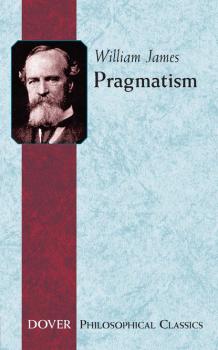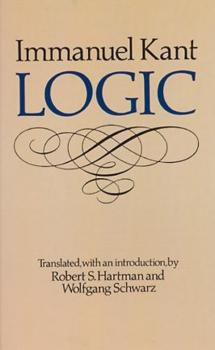ТОП просматриваемых книг сайта:
Философия
Различные книги в жанре Философия, доступные для чтения и скачиванияАннотация
The foundation for a general system of morals, this 1749 work is a landmark in the history of moral and political thought. Readers familiar with Adam Smith from The Wealth of Nations will find this earlier book a revelation. Although the author is often misrepresented as a calculating rationalist who advises the pursuit of self-interest in the marketplace, regardless of the human cost, he was also interested in the human capacity for benevolence — as The Theory of Moral Sentiments amply demonstrates.The greatest prudence, Smith suggests, may lie in following economic self-interest in order to secure the basic necessities. This is only the first step, however, toward the much higher goal of achieving a morally virtuous life. Smith elaborates upon a theory of the imagination inspired by the philosophy of David Hume. His reasoning takes Hume's logic a step further by proposing a more sophisticated notion of sympathy, leading to a series of highly original theories involving conscience, moral judgment, and virtue.Smith's legacy consists of his reconstruction of the Enlightenment idea of a moral, or social, science that embraces both political economy and the theory of law and government. His articulate expression of his philosophy continues to inspire and challenge modern readers.
Аннотация
Plato's brilliant dialogues, written in the fourth century B.C., rank among Western civilization's most important philosophical works. Presented as a series of probing conversations between Socrates and his students and fellow citizens, they form a magnificent dialectical quest that examines enduring political, ethical, metaphysical, and epistemological issues. Here, in one inexpensive edition, are six of Plato's remarkable and revelatory dialogues, each translated by distinguished classical scholar Benjamin Jowett. Apology defends the integrity of Socrates' teachings. Crito discusses respect for the law. Phaedo considers death and the immortality of the soul. Phaedrus explores the psychology of love. Symposium reflects on the ultimate manifestation of the love that controls the world, and The Republic ponders society and the philosopher's role within it. Stimulating, dramatic, and always relevant, these dialogues have profoundly influenced the history of intellectual thought, and offer crucial insight into mystical, aesthetic, and other aspects of Platonic doctrine.
Аннотация
A profoundly influential figure in American psychology, William James (1842–1910) was also a philosopher of note, who used Charles S. Peirce's theories of pragmatism as a basis for his own conception of that influential philosophy. For James, this meant an emphasis on «radical empiricism» and the concept that the meaning of any idea — philosophical, political, social, or otherwise — has validity only in terms of its experiential and practical consequences. James propounded his theories of pragmatism in this book, one of the most important in American philosophy. In a sense, he wished to test competing systems of thought in the «marketplace of actual experience» to determine their validity, i.e. whether adopting a particular philosophical theory or way of looking at the world makes an actual difference in individual conduct or in how we perceive and react to the varieties of experience. In these pages, James not only makes a strong case for his own ideas, but mounts a powerful attack against the transcendental and rationalist tradition.For anyone interested in William James or the history of American philosophical thought, Pragmatism is an essential and thought provoking reference. In this handy, inexpensive edition, it will challenge and stimulate any thinking person.
Аннотация
Hegel wrote this classic as an introduction to a series of lectures on the «philosophy of history» — a novel concept in the early nineteenth century. With this work, he created the history of philosophy as a scientific study. He reveals philosophical theory as neither an accident nor an artificial construct, but as an exemplar of its age, fashioned by its antecedents and contemporary circumstances, and serving as a model for the future. The author himself appears to have regarded this book as a popular introduction to his philosophy as a whole, and it remains the most readable and accessible of all his philosophical writings.Eschewing the methods of original history (written during the period in question) and reflective history (written after the period has passed), Hegel embraces philosophic history, which employs a priori philosophical thought to interpret history as a rational process. Reason rules history, he asserts, through its infinite freedom (being self-sufficient, it depends on nothing beyond its own laws and conclusions) and power (through which it forms its own laws). Hegel argues that all of history is caused and guided by a rational process, and God's seemingly unknowable plan is rendered intelligible through philosophy. The notion that reason rules the world, he concludes, is both necessary to the practice of philosophic history and a conclusion drawn from that practice.
Аннотация
Hailed by Dante as «the master of those who know,» the Greek philosopher Aristotle (384–322 B.C.) surveyed every field of learning known to the ancient world and pioneered the sciences of psychology and logic. A disciple of Plato and the tutor to Alexander the Great, Aristotle was a prolific writer, although many of his works have been lost. His treatises, used by the students of his famous Athenian school, the Lyceum, exerted a profound and lasting influence on Western thought.Aristotle's Nicomachean Ethics is one of the world's great books. Identifying happiness as the goal of life, he rejects pleasure, fame, and wealth as means to it. The summit of human achievement is attainable only through the contemplation of philosophic truth, because this practice exercises the virtue peculiar to the human being, the rational principle.This inexpensive edition of a philosophical landmark will prove an invaluable resource to students and general readers alike.
Аннотация
A monumental work by an important modern philosopher, Matter and Memory (1896) represents one of the great inquiries into perception and memory, movement and time, matter and mind. Nobel Prize–winner Henri Bergson surveys these independent but related spheres, exploring the connection of mind and body to individual freedom of choice.Bergson's efforts to reconcile the facts of biology to a theory of consciousness offered a challenge to the mechanistic view of nature, and his philosophy can be regarded as a forerunner to later developments in relativity theory and conceptions of mental process. His original and innovative views exercised a profound influence on other philosophers — including James, Whitehead, and Santayana — as well as novelists such as Dos Passos and Proust. Essential to an understanding of Bergson's philosophy and its legacy, this volume appears on the Malaspina Great Books Core Reading List.Essential to an understanding of Bergson's philosophy and its legacy, Matter and Memory is among Dover's Philosophical Classics. A collection of the major works in Western and Eastern philosophy, this new series ranges from ancient Greece to modern times. Its low-priced, high-quality, unabridged editions are ideal for teachers and students as well as for other readers.
Аннотация
The second, corrected edition of the first and only complete English translation of Kant's highly influential introduction to philosophy, presenting both the terminological and structural basis for his philosophical system, and offering an invaluable key to his main works, particularly the three Critiques. Extensive editiorial apparatus.
Аннотация
"All men by nature are actuated with the desire of knowledge," declared Aristotle. The philosopher's works are foundational to the history of science, and his treatise on metaphysics, or «first philosophy,» is divided into sections on previous philosophical thought and theories; a refutation of skepticism; a demonstration of God's existence; an examination of the relation of metaphysics to the other sciences; an elucidation of the nature of the infinite; and other major philosophical issues.The central theme consists of an inquiry into how substance may be defined as a category of being. Aristotle defines substance as ultimate reality, since substance belongs to no other category of being, and because substance serves as the basis for every other category of being. The philosopher also defines substance as an underlying reality, or as the substratum of all existing things. He describes substance as both formal and material reality, and he discusses the relation between potentiality and actuality. An excellent example of Aristotle's dialectical method, which reasons from reliable opinions rather than known truths, this work offers a fine introduction to classical metaphysics.
Аннотация
"A delightful book … I should like to have written it myself." — Bertrand RussellFirst published in 1936, this first full-length presentation in English of the Logical Positivism of Carnap, Neurath, and others has gone through many printings to become a classic of thought and communication. It not only surveys one of the most important areas of modern thought; it also shows the confusion that arises from imperfect understanding of the uses of language. A first-rate antidote for fuzzy thought and muddled writing, this remarkable book has helped philosophers, writers, speakers, teachers, students, and general readers alike.Mr. Ayers sets up specific tests by which you can easily evaluate statements of ideas. You will also learn how to distinguish ideas that cannot be verified by experience — those expressing religious, moral, or aesthetic experience, those expounding theological or metaphysical doctrine, and those dealing with a priori truth. The basic thesis of this work is that philosophy should not squander its energies upon the unknowable, but should perform its proper function in criticism and analysis.
Аннотация
This is the full, unabridged text of one of the greatest philosophic works of all time. Written by a 12th- century thinker who was equally active as an original philosopher and as a Biblical and Talmudic scholar, it is both a classic of great historical importance and a work of living significance today.The Guide for the Perplexed was written for scholars who were bewildered by the conflict between religion and the scientific and philosophic thought of the day. It is concerned, basically, with finding a concord between the religion of the Old Testament and its commentaries, and Aristotelian philosophy. After analyzing the ideas of the Old Testament by means of «homonyms,» Maimonides examines other reconciliations of religion and philosophy (the Moslem rationalists) and then proposes his own resolution with contemporary Aristotelianism. The Guide for the Perplexed was at once recognized as a masterwork, and it strongly influenced Jewish, Christian, and Moslem thought of the Middle Ages. It is necessary reading for any full comprehension of the thought of such scholastics as Aquinas and Scotus, and indispensable for everyone interested in the Middle Ages, Judaism, medieval philosophy, or the larger problems which Maimonides discusses.










